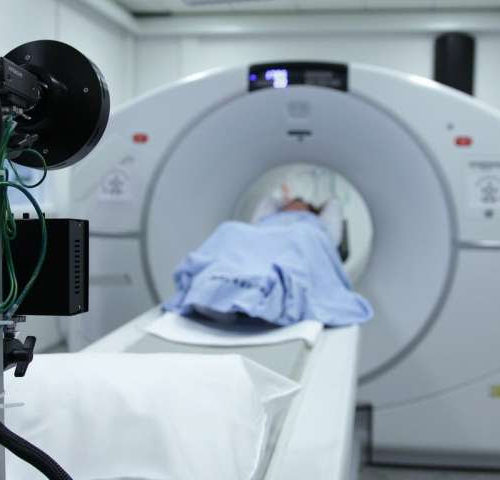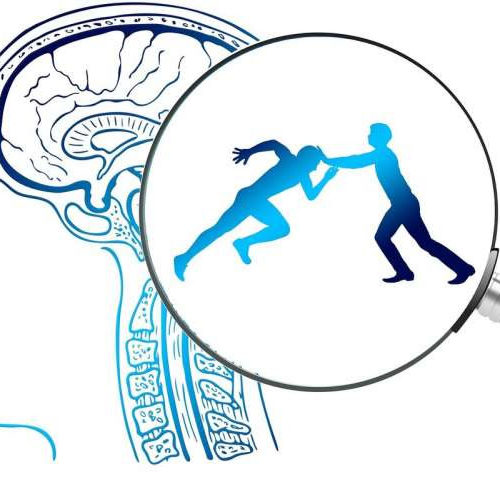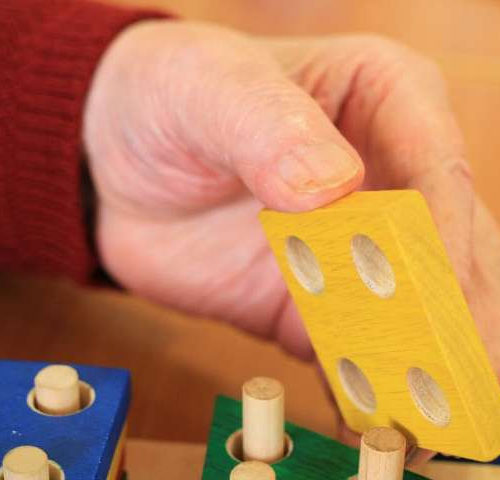Promoting blood brain barrier health by reducing elevated pulse pressure in blood could be a promising new preventative solution and/or treatment for dementia. A recent paper published in Frontiers in Neuroscience, outlines a pulse-pressure-induced pathway of cognitive decline that sheds light on why previous treatments for dementia may have failed and proposes promising new directions...
Tag: <span>Dementia</span>
Should diabetes treatment lessen for older adults approaching the end of life?
Journal of the American Geriatrics Society Research Summary AMERICAN GERIATRICS SOCIETY One in four people aged 65 or older has diabetes. The disease is the seventh leading cause of death in the United States and a major contributor to heart disease. Experts have recommended that the best way to slow the progression of diabetes–and help...
How ApoE4 endangers the brain
by Max Delbrück Center for Molecular Medicine Apolipoprotein E (ApoE) is kind of like a delivery service for the human brain. It supplies neurons with important nutrients, including with polyunsaturated fatty acids—which are building blocks of the membranes surrounding the neurons. In addition, certain unsaturated fatty acids are converted into so-called endocannabinoids. These are endogenous...
Study finds protein in mitochondria appears to regulate health and longevity
by University of Southern California A new study led by researchers at the USC Leonard Davis School of Gerontology is the first to demonstrate that a tiny protein has a big impact on health and longevity in both animals and humans. The researchers examined humanin, a peptide encoded in the small genome of mitochondria—the powerhouses...
Repetitive negative thinking linked to dementia risk
by University College London In the study of people aged over 55, published in Alzheimer’s & Dementia, researchers found ‘repetitive negative thinking’ (RNT) is linked to subsequent cognitive decline as well as the deposition of harmful brain proteins linked to Alzheimer’s. The researchers say RNT should now be further investigated as a potential risk factor...
Sleep-wake disturbances can predict recurrent events in stroke survivors
(Vienna, Sunday, 24 May, 2020) Stroke survivors suffering from the burden of combined sleep-wake disturbances are more likely to have another stroke or serious cardio- or cerebrovascular event compared to those without sleep-wake disturbances, according to the results of a scientific study presented today at the European Academy of Neurology (EAN) Virtual Congress. The study,...
NUI Galway research show blood pressure lowering reduces risk of developing dementia
Research completed in NUI Galway has shown that lowering blood pressure by taking blood pressure medications reduces the risk of developing dementia and cognitive impairment by 7%. The findings are published today in a leading international medical journal, the Journal of the American Medical Association (JAMA). Fourteen randomised controlled trials (96,158 participants) were included in...
Brain’s ‘updating mechanisms’ may create false memories
by University of Technology, Sydney A study published in Current Biology reports on one of the first comprehensive characterizations of poorly formed memories, and may offer a framework to explore different therapeutic approaches to fear, memory and anxiety disorders. It may also have implications for accuracy of some witness testimony. Senior author Professor Bryce Vissel,...
If your memory feels like it’s not what it once was, it could point to a future dementia risk
by University of New South Wales Research led by Dr. Katya Numbers from UNSW’s Centre for Healthy Brain Ageing (CHeBA) has shown that certain presentations of memory concerns by older adults are predictive of future dementia. The findings published today in PLOS ONEhighlight the importance of general practitioners in listening to their older adult patient...
From Depression to Dementia, Inflammation Is Medicine’s New Frontier
he barrier between mind and body appears to be crumbling. Clinical practice and public perception need to catch up. The GuardianEdward Bullmore Unlikely as it may seem, #inflammation has become a hashtag. It seems to be everywhere suddenly, up to all sorts of tricks. Rather than simply being on our side, fighting infections and healing...






